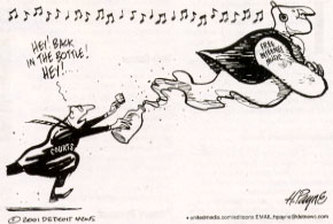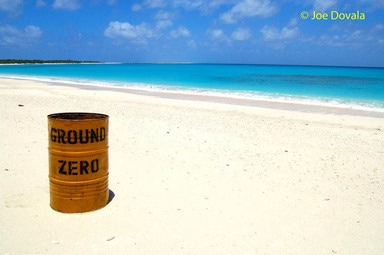
Lately, members of Malta Tenant Support have been much sought after by political parties keen to find out more about the hot topic of the moment – renting in Malta. This is very welcome. Somehow, our group of 2 years has amassed a wealth of experience and expertise that is very valuable. It is quite a responsibility we have. Somehow we must ensure that we leave nothing out. There is so much to say that inevitably, I, for one, am always kicking myself a few minutes after the meeting at some omission or other.
A few days ago, we met with a political party and had a very intense discussion about the problems tenants face. We also discussed possible solutions. The attitude was one of listening to what we had to say – in fact, I had to kick myself several times during the meeting. This would have been unheard of only a year ago.
Recently, our group had put together a list of measures we would like the state to take to improve matters for tenants living in Malta. We discussed this list at the meeting. These humble measures were mostly well received. It was only later, some time after the meeting, that I put shape to some thoughts lurking at the back of my mind, which I will now set down in this blog, for my peace of mind.
Malta’s rental market was completely liberalized in 1995. The only legislation on renting is found in the very generic Maltese Civil Code, which concerns all ‘things’ let, not just accommodation. In the 22 years since then, landlords have been completely free to charge whatever rent they wanted, to include in their rental contracts any clause they wanted, tenant-fair or unfair...
Nothing wrong with with that, you’d say. But actually, from the limited research I have done on renting policy in different countries, there is plenty wrong with that.
To go back to that list of measures. Most of them are commonplace in most countries all over the world. And have been for decades. A register of landlords and rental contracts. A licence to let your property (incidentally there is a licensing system for short holiday lets in Malta, but nothing for long lets – says it all, doesn’t it?). The landlord to pay all of the letting agent fee. The upholding of certain standards of accommodation – electrical, gas safety certification, mould free certification, the EPC, compulsory since 2009 under EU law... The formation of a deposit holding scheme by an independent body. A minimum contractual period of 4 years. The rent increasing by a maximum of 20% over 4 years. The insistence on non cash rent payments. A complete overhaul of the Arms billing system which will allow tenants to automatically be on the correct tariff for people living in their primary residences, and which will allow tenants to have access to their own bills. Special legislation to outline rights and responsibilities of both landlord and tenant. This is by no means exhaustive, but is a start.
What’s been troubling me is this: landlords have made the most of the complete liberalization of the rental market. Bil-Malti, is-sidien tad-djar għamlu festa, dawn l-aħħar snin. Iffangaw, u kif. Rents are sky high. Standards of rental accommodation are abysmal. Tax evasion is rife. Landlords are mostly unprofessional and often abusive. Tenants feel sordid every month when they hand over huge amounts of cash to their landlords. Most tenants are on the extortionate summer residence tariff. Most tenants do not have access to their own Arms bills. Most tenants do not have access to the Arms redress mechanism. The electrics and plumbing in most properties are shocking. Many properties have a problem with mould. Deposits are unjustifiably retained by most landlords, who seem to think that they have a right to that money, no matter what. Rental contracts tend to be of 1 year, with the result that the rent goes up every year or you’re out of the property, out of the community you were building roots in, on to the next property. Contracts are mostly tenant-unfair...
So the question I am asking myself is this: How will it be possible for our members of parliament, from both sides of the House, to propose tenant protection measures when landlords have been glorying in their liberty to take advantage of the precarious situation tenants find themselves in for more than 2 decades now? Other than Malta, I do not think I have come across a single country in the world, from my admittedly limited research, that has allowed the complete liberalization of the rental market to the same extent.
Even if the modest measures listed above were put into place overnight, would it make that much of a difference to the lot of tenants? Would the rents come down to acceptable amounts? How is a landlord, accustomed to getting an undeclared €700 euro per month for a tiny, run down apartment, going to suddenly decrease the rent?
If this is going to be the burning issue for the next general election – and it is clear that it is – how are politicians going to sell this one to the Maltese landlords? The genie is well and truly out of the bottle, and has been for quite some time now. Is it even possible to put it back in again?
My opinion is that this situation must not be a political football. There are many tenants, living in despair, being denied access to the most important of human rights – decent, reasonably priced accommodation of reasonably secure tenure. Both PN and PL share the responsibility for the current housing crisis. This has been a long time coming. Instead of political expediency, both parties need to come together and agree to not be partisan about this. All three rental regimes need urgent attention: the social housing sector, the private rental sector and the emphyteusis rentals. Malta is currently at Ground Zero of rental policy. Somehow the genie must be put back into the bottle. This is not about votes and it will be highly irresponsible if it is made out to be.
Just to hammer the point home. Some basic Maths. The recent Caritas study identified that a family of 4 needs a minimum of 936 euro per month (€953 - €17 social housing costs per month) to just get by. If that same family is in the private rental sector and pays €500 per month on rent when the income is €1 000 per month, can you please see how this is untenable? Can you see that it is impossible to square this particular circle?


 RSS Feed
RSS Feed